John was very pleasant. The service was very fast and efficient and I was very satisfied with the result.
Suffered a Personal Injury
Who will fight for what’s right?
When you’ve been injured and it’s not your fault – the unfairness can add to your sense of hurt and pain. But together, we have the power to act. To redress the balance in your favour.
Because we care to make it fair. We fight to make it right.

Play Video
55 Years in Business
Personal Injury Law Firm of the Year
Green Practice Charter
Team of 120
Nationwide Service
Dublin, Limerick and Cork Offices
What is a personal injury claim?
Personal injury refers to harm or illness caused—or exacerbated—by someone else’s negligence. If you’ve experienced such circumstances, you may be entitled to pursue a personal injury claim. Understanding your rights is the first step towards justice and recovery.
In personal injury cases, the injured party seeks compensation from the responsible party for damages such as medical expenses, lost wages, and pain and suffering. These cases often involve complex legal issues and may be resolved through settlement negotiations or court trials.
Who Can Make a Personal Injury Claim?
If you’ve been involved in an accident that resulted in injury, and you believe another person or organisation was at fault, you might be wondering if you’re eligible to make a Personal Injury Claim. At HOMS Assist, we’re here to help you understand the process and determine your next steps.
Am I Eligible to Make a Personal Injury Claim?
To make a personal injury claim, you need to meet specific criteria:
- Accident and Injury: You’ve suffered a personal injury caused by an accident.
- Liability: The accident happened due to someone else’s negligence, either another person or an organisation.
- Time Limits: Most personal injury claims must be made within two years of the date of the accident. However, exceptions may apply depending on the circumstances, so it’s best to seek legal advice as soon as possible.
If you believe your situation meets these conditions, it could be time to consider pursuing a claim.
Testimonial
“
Robert
Title Here
“
John is always great to return calls. He has great time for his clients and gets things done.
Aine
Title Here
“
John was outstanding. He was very professional and nice to deal to deal with. The only way to improve the service would be for them to move closer to Kerry!
Michael
Title Here
“
John was lovely and easy to get on with. The service was excellent. The best things were that everyone was polite and keeping me informed.
Lynda
Title Here
“
John was very professional and honest and the service I received was very friendly and helpful
Aimee
Title Here
“
John was amazing! The service was excellent, really efficient and professional. He explained everything and was so nice to me
Emma
Title Here
“
John was very pleasant. The service was very fast and efficient and I was very satisfied with the result.
Robert
Title Here
“
John is always great to return calls. He has great time for his clients and gets things done.
Aine
Title Here
Personal Injury Cases
Our team of experienced legal professionals understands the far-reaching consequences of personal injuries. When you’ve been wronged, we can’t turn back the clock. But we can take action. To listen. To understand. To stand with you. To redress the balance in your favour.
Accidents at Work
You're injured. It's not your fault. Who cares?
Our expert workplace injuries solicitors.
When you and your livelihood are threatened it’s very stressful. You can feel alone. But, we have the power to act. To listen. To stand with you, and for you. To work to redress the balance in your favour.
The legal guide you need on your side.

Road Traffic Accidents
Motor accident caused by a third party. Who will fight for what's right?
When your vehicle is damaged and it’s not your fault, you have the right to get back on the road. Rapidly, with minimal fuss, and no loss to you.
HOMS Assist is the experienced team you need
on your side – to ensure everything is put just right.

Accidents in a Public Place
Sometimes, accidents occur due to the negligence of those responsible for public areas. We can assist in holding them accountable, ensuring you receive the compensation you deserve.
- Shop or supermarket Claims
- Bar or Pub Accident Claims
- Local Authority Claims

If a loved one has been the victim of substandard care by a medical practitioner and this resulted in their untimely death you may be entitled to make a claim for medical negligence. If you are concerned that such an error was made please contact us for advice from our team of experienced legal professionals.

Your health and wellbeing should never be compromised. If you've been affected by medical negligence, contact us today for expert advice and guidance.
Medical negligence can take many forms, and we have outlined some of the most common types. Understanding these can be crucial for recognising when care does not meet the necessary standards. We are here to support and guide you through these concerns with empathy and expertise.

How Do I Make A Personal Injury Claim?
The goal of a personal injury claim is to seek compensation for the harm or injury sustained. Reaching out to experienced personal injury solicitors can be a vital step. We are here to guide you through the process with care and expertise. Here’s how we can help:
Report
Injuries Board Application
Your solicitor will complete an Injuries Board application on your behalf. After reviewing your claim, the Injuries Board may propose a compensation amount. This sum would be paid to you by the liable party. You’ll need to decide whether to accept this offer or not.
Proceed With Claim
If either you or the party at fault declines the proposed settlement amount, you will proceed to initiate court proceedings against the responsible party for your accident or injury.
Case Studies
HOMS Assist is here to help people to transform their toughest challenges into successful outcomes. Explore our case studies, showcasing real results from Personal Injury claim cases.
Justice Achieved in the Thomond Bridge Workplace Tragedy Background
On 29th August 2015, the tragic Thomond Bridge incident in Limerick shook the community and highlighted critical workplace safety issues. Bryan Whelan, a skilled stonemason, and his colleague T.J. O’Herlihy lost their lives when a maintenance cage they were in plunged into the River Shannon due to a crane’s steel cable snapping. Another colleague narrowly escaped the disaster. Subsequent investigations uncovered significant safety lapses, including failures in equipment maintenance and critical safety mechanisms.
For nearly ten years following the tragedy, the Whelan family endured a prolonged legal battle seeking justice for Bryan. They were represented by Seán Fitzgerald, Partner at HOMS Assist Solicitors, who ensured their case brought attention to workplace safety and corporate accountability.
The Challenges
Navigating a personal injury case of this magnitude required resilience, meticulous investigation, and expert legal representation.
Corporate Negligence: Despite clear safety lapses, holding companies accountable proved to be a long and complex process. This included criminal prosecutions against Palfinger Ireland Ltd. and Nationwide Crane Hire, which resulted in significant fines (€25,000 and €200,000, respectively).
Delayed Justice: The Whelan family faced emotional struggles compounded by the years-long delay in resolution, amplifying their grief.
Changing Standards: The case raised critical questions about the adequacy of workplace safety regulations and compliance measures.
Key Outcomes
The settlement achieved by HOMS Assist Solicitors in the High Court was more than just a legal victory—it provided some degree of closure for the Whelan family.
Broader Implications
This case’s impact goes beyond a single family. It has set a precedent for workplace safety vigilance and accountability across Ireland.
Raising Awareness: The case has become a stark reminder for businesses, urging them to prioritise robust safety measures in high-risk environments.
Legal Accountability: The penalties imposed have signalled to organisations the importance of maintaining safety standards to protect their workforce.
Family and Community Impact
Bryan Whelan was a beloved stonemason and a spirited individual. His tragic death not only impacted his family and friends but inspired the community to advocate for change. His parents’ resilience throughout nearly a decade of legal proceedings exemplified the emotional toll such battles take on families of workplace accident victims. Their courageous pursuit of justice serves as a reminder of the critical human dimension to these tragedies.
Lessons and Insights
For victims of workplace accidents and their families, this case offers essential takeaways:
Do Not Hesitate to Seek Justice: Proving accountability can take time, but expert legal representation ensures the pursuit of justice is steadfast and comprehensive.
Workplace Safety is Non-Negotiable: Employers must prioritise regular maintenance and proactive safety measures to prevent tragedies.
Empathy and Expertise Matter: Your legal team must not only be skilled but empathetic to support families through challenging times.
A Call to Action for Safer Workplaces
The Thomond Bridge tragedy has left an indelible mark, illustrating the vital need for safer work environments. Families like the Whelans remind us of the strength it takes to pursue justice against negligence, while the case itself underscores the importance of accountability in the workplace.
At HOMS Assist Solicitors, we are committed to supporting personal injury claimants and their families with compassion and professionalism throughout the legal process. Our team ensures no case is overlooked, no loss is forgotten, and justice is pursued relentlessly.
If you or someone you know has been affected by a workplace accident, do not wait to seek advice. Contact HOMS Assist Solicitors today for expert guidance and support in navigating your legal rights.
Achieving Justice After a Workplace Tragedy
Overview
On 29th August 2015, a tragic workplace accident occurred at Thomond Bridge in Limerick City. Paul Murphy, employed by Paul Mulcair Limited, alongside his colleagues, was performing bridge repairs when a crane’s man cage malfunctioned, causing it to plummet into the River Shannon. While Mr Murphy narrowly escaped with his life, his colleagues, TJ O’Herlihy and Bryan Whelan, tragically perished. Mr Murphy sustained severe physical injuries and was left with lifelong psychological trauma, including post-traumatic stress disorder (PTSD).
The Challenge
Workplace accidents not only impact physical and emotional wellbeing but can also leave victims and their families navigating complex legal and emotional challenges. For Mr Murphy, achieving justice meant holding the responsible parties accountable for breaches of workplace safety, ensuring no other families endure similar heartbreak in future.
This case presented significant legal complexities. The parties involved included multiple employers and contractors, with various safety measures brought into question. Furthermore, the pursuit of justice required navigating criminal proceedings in addition to seeking a civil settlement.
Our Approach
At HOMS Assist, our priority is ensuring that victims receive the support they need to achieve justice and closure. Representing Mr Murphy, Partner Robert Bourke, along with the legal team, employed a compassionate, systematic approach to the case.
Thorough Investigation: We conducted an in-depth analysis of the accident and its causes, examining all aspects of workplace safety, maintenance protocols, and equipment functionality.
Collaboration: Our team worked closely with experts in workplace safety to build a robust case, ensuring no detail was overlooked.
Advocacy and Representation: Representing Mr Murphy in Dublin High Court, we held multiple parties accountable, including Paul Mulcair Limited, Gaelach Droichead Limited, Nationwide Crane Hire Limited, and others.
Support: Beyond legal work, we supported Mr Murphy through the psychological toll of reliving the tragic events during the proceedings.
The Outcome
After years of dedicated efforts, HOMS Assist reached a significant legal settlement in Dublin High Court. While the settlement cannot undo the tragedy, it marked an important milestone in Mr Murphy’s pursuit of justice for himself and his late colleagues.
Criminal proceedings had previously resulted in fines for both Palfinger Ireland Limited and Nationwide Crane Hire Limited for breaches of the Health and Safety at Work Act. These outcomes further highlight the need for strict adherence to workplace safety regulations.
Client Perspective
Mr Murphy expressed both relief and disappointment at the conclusion of the case. While the defendants accepted responsibility for the accident, their refusal to issue an apology denied an important gesture of acknowledgment for the distress caused.
Sharing his statement, Mr Murphy said, “The last nine years since that day have been a horrendous ordeal. I relive the moments of that afternoon constantly. Today, thankfully, brings an end to the civil and criminal proceedings for me and, hopefully, over time, we can put this into the past. I want to thank my legal team at HOMS Assist for their steadfast support and expertise. Their compassion and professionalism have been a source of strength for me and my family.”
The Bigger Picture
This case serves as a stark reminder of the importance of strict workplace safety protocols, particularly in high-risk professions. Businesses must prioritise the safety of employees, ensuring robust checks and maintenance procedures are implemented.
For those affected by workplace accidents, pursuing justice can feel daunting, but it’s essential for creating safer environments for future employees.
Closing Thoughts
At HOMS Assist, we are committed to helping victims of workplace accidents and personal injury find justice and closure. Every worker deserves to come home safely, and tragedies like this reinforce our unwavering dedication to supporting those impacted by corporate negligence.
If you or someone you know has suffered from a workplace accident, we’re here to help. Contact us for expert advice and compassionate support.
Securing Justice for a Life-Changing Workplace Injury
Overview
When a workplace fails to uphold basic safety standards, the consequences can be devastating. For John Corcoran, a former ESB (Electricity Supply Board) employee with over 40 years of service, this reality hit hard. On 12th September 2016, while working remotely on Kilduff Mountain in Co. Tipperary, John faced a traumatic incident—a stag attack—that left him with life-altering injuries.
With the support and expertise of HOMS Assist, John’s fight for accountability came to a crucial turning point in January 2022 when the High Court granted him a substantial settlement, bringing closure to a nearly six-year legal battle.
This case highlights the critical need for workplace safety, employer accountability, and the importance of seeking legal advice after a life-changing injury.
The Challenge
What Happened?
John Corcoran was employed as an engineering officer at the ESB. His role involved working in remote and challenging terrains. Despite repeated requests to address the risks of working alone in isolated areas, adequate support measures were not implemented.
During one such assignment, John was attacked by a large stag while conducting fieldwork on Kilduff Mountain. He was left unconscious and buried in a bush for over 90 minutes before being discovered and rushed to the hospital.
This unprecedented workplace accident resulted in extensive injuries, including:
A brain injury, causing cognitive difficulties, memory and hearing loss, issues with concentration, and balance impairments.
Soft tissue injuries, compounding the impact on his physical and mental well-being.
The attack left John requiring full-time care, drastically altering his quality of life and his family’s day-to-day reality.
Legal Hurdles
Beyond the immense physical and emotional toll, John faced the legal challenges of pursuing justice against a major employer. The nearly six-year battle required clarity, resilience, and the right legal expertise to ensure accountability was achieved.
The Solution
John Corcoran turned to HOMS Assist, a team of expert solicitors with a proven track record in personal injury claims. Spearheaded by Robert A. Bourke and Sean Fitzgerald, our team committed to delivering the justice John deserved.
Key areas of focus for the case included:
Establishing Negligence
Demonstrating ESB’s failure to provide adequate safety measures for fieldwork in remote locations.
Highlighting the Impact
Clearly outlining the physical, emotional, and financial toll the incident had on John and his family.
Securing Long-Term Support
Negotiating a settlement that would provide the necessary resources to cover his medical care and living expenses moving forward.
The Outcome
On 14th January 2022, the High Court ruled in favour of John Corcoran, awarding him a substantial settlement.
This victory not only provided much-needed financial stability for John and his family but also set a precedent for workplace safety and accountability in Ireland.
Statements
John Corcoran, reflecting on the settlement, stated:
“It is deeply regrettable that this case and accident occurred when it could so easily have been prevented with better support and working conditions from the ESB. No employee…should ever be left alone, especially in remote, dangerous terrains. I truly hope lessons have been learned.”
Sean Fitzgerald, Partner at HOMS Assist, commented:
“We are proud to have represented Mr Corcoran in this shocking workplace accident. It is miraculous that he survived, and we are grateful this settlement provides him with the care and support he requires.”
Key Takeaways for Workplace Accident Victims
Seek Legal Advice
If you’ve suffered an injury at work, consulting with experienced personal injury solicitors is crucial in navigating the complexities of your case.
Employer Responsibility is Non-Negotiable
Employers are legally obligated to provide safe environments for their employees. If these responsibilities are neglected, legal action can hold them accountable.
Financial Support Can Be Secured
Life-changing circumstances require extensive care and resources. Settlements can ensure you or your loved ones receive the necessary support to move forward.
Support and Justice for Tanya’s Family
At HOMS Assist, we understand that no two stories are the same, but every client deserves compassionate support and determined representation. Tanya’s story exemplifies our commitment to helping families rebuild their lives following devastating circumstances.
The Challenge
Tanya’s life was irrevocably changed due to a tragic road traffic accident that claimed the life of her husband while he was carrying out his work duties for An Post. The circumstances were far from straightforward. Not only was there no bicycle helmet involved, but also a witness statement indicated the collision may have been unavoidable. These factors added layers of complexity to the case, making the pursuit of justice feel like an uphill battle.
Despite these daunting challenges, it was clear that Tanya and her two young twins were left facing profound emotional and financial hardship.
HOMS Assist’s Approach
Our dedicated team at HOMS Assist took time to fully understand Tanya’s situation, acknowledging the sensitive and complex nature of her case. With professionalism and compassion at the core of our approach, we conducted a thorough investigation, dissecting every detail of the incident.
We worked diligently to address the challenging elements of the case, leaving no stone unturned. Every effort was made to counter the implications of the witness statement and the lack of helmet use, ensuring that the central focus remained on the impact of the loss on Tanya and her children.
Throughout the process, Tanya was provided with unwavering support, with regular updates and meaningful communication to ensure she felt heard and understood.
The Outcome
After tireless advocacy and meticulous legal work, our team secured a settlement that honoured Tanya’s loss and recognised the pain endured by her family.
This outcome not only provided the financial support Tanya and her twins needed to rebuild their lives but also offered a sense of justice amidst their grief.
Why HOMS Assist
Tanya’s case highlights the core of what HOMS Assist stands for. We are relentless in our pursuit of justice for those impacted by workplace accidents and personal injuries, regardless of the challenges a case may hold.
If you or someone you know has endured a life-altering incident, we’re here to guide you every step of the way—with empathy, expertise, and unmatched determination.
Contact us today to discuss your case and see how we can support you.
Justice Secured for Workplace Accident Victim
Overview
In a landmark case, a meat factory worker, Johnwin Turner, successfully secured a High Court settlement for the life-changing injury he suffered on May 7th, 2015. The devastating workplace incident involved a mincing machine at Liffey Meats, Ballyjamesduff, Co. Cavan, highlighting the importance of workplace safety and employer accountability. Despite the challenges posed by contributory negligence claims, Mr. Turner’s case is a vital reminder of the power of speaking out and seeking justice.
The Incident
At just 21 years old, Mr. Turner suffered a catastrophic injury while operating machinery at his workplace. He was instructed to “pre-clean” the mincing machine and attempted to dislodge a piece of raw meat that was stuck under the rotation blades. Despite turning off the machine, his left arm was pulled into the mechanism, leaving him with severe injuries.
The task was undertaken without proper safety equipment, training, or supervision. Although Mr. Turner attempted to carry out his job to the best of his ability, the court heard that he received no adequate warnings about the dangers involved. His efforts to perform his duties in good faith resulted in a tragic and preventable accident.
The Legal Case
- Mr. Turner brought legal action against his former employer, Liffey Meats, citing negligence and a failure to ensure a safe working environment.
- His claims included that the employer had:
- Failed to provide proper health and safety precautions.
- Offered inadequate training and supervision.
- Neglected to supply sufficient protective equipment.
- Failed to warn him about the risks he was exposed to in his job.
- During the case, Mr. Turner admitted that not looking into the machine was reckless; however, he emphasised that he was never instructed not to put his hand into the machine. He insisted that he acted in line with his understanding of how the task should be performed.
- The High Court eventually reached a settlement, which accounted for 25% contributory negligence on Mr. Turner’s part, recognising the complexities of the situation.
Key Takeaways for Workers and Employers
This case serves as an important lesson for both employees and employers regarding workplace safety and rights.
For Workers
You Have the Right to a Safe Workplace: It is your employer’s responsibility to provide proper training, safety equipment, and clear instructions for hazardous tasks.
Seeking Justice is Legitimate: If you are injured at work, you have the right to hold your employer accountable for negligence.
Contributory Negligence Doesn’t Mean No Compensation: Even if you share some responsibility, as highlighted in this case, you can still secure a settlement for your injuries.
For Employers
Prioritise Safety Protocols: Ensure all equipment is maintained and proper procedures are in place.
Provide Comprehensive Training: Employees should be equipped with the knowledge to handle tasks safely and understand the risks.
Minimise Risk Areas: Take proactive measures to assess and reduce potential hazards.
Why This Case Matters
Workplace accidents can have life-altering consequences, physically, emotionally, and financially. Mr. Turner’s bravery in seeking justice has not only secured accountability for his own experience but also raised awareness about the importance of workplace safety.
For individuals who have experienced workplace accidents, it’s important to know that you’re not alone. Employers have a duty to provide safe working conditions, and when this duty is neglected, victims have legal options to seek compensation and justice.
Take Action
If you or someone you know has been the victim of a workplace accident, don’t hesitate to reach out for help. Our team of experienced personal injury solicitors can offer you guidance and support every step of the way. We understand the emotional and financial toll these injuries can take and are committed to securing the justice you deserve.
Contact us today for a free consultation – your voice matters, and we’re here to amplify it.
Potentially Long Case Study Title Goes Here
Potentially Long Case Study Title Goes Here
Potentially Long Case Study Title Goes Here
Potentially Long Case Study Title Goes Here
Potentially Long Case Study Title Goes Here
Potentially Long Case Study Title Goes Here
Potentially Long Case Study Title Goes Here
Potentially Long Case Study Title Goes Here
Potentially Long Case Study Title Goes Here
What We Offer
Every case is unique. We take the time to understand your individual circumstances and tailor our approach to meet your specific needs, ensuring you receive the best possible outcome.
Expertise You Can Trust:
When you face challenging times, you need an expert in your corner. To represent your interests. HOMS Assist is at your side. Understanding partner, champion and guide. At HOMS Assist, we have extensive experience dealing with personal injury claims. Our expert team, lawyers, claims experts, and advisors – give you thoughtful assistance and support, when you need it most.
Building a Strong Case:
Success is in the details. We’ll gather all the necessary evidence and build a strong case to ensure your claim has the best chance of succeeding. From medical reports to witness statements, we’ll handle it all for you. HOMS Assist is invested in a more personal approach. Taking time to see the person at the heart of the matter. We explain and inform. Lay out the options and devise the best approach for you, in plain language. Your case becomes our cause. We battle on your behalf to resolve the issues, to redress the balance. We do the right things, to set things right. To transform challenges into the best outcome for you.
Award Winning Expertise
We are honoured to be recognised as the Personal Injury Law Firm of the Year by a panel of our peers. This award reflects our commitment to providing expert legal support with genuine care and understanding. We strive to instil trust and comfort in those we serve, balancing professionalism with empathy to address your needs and concerns.
Associated People
Our dedicated personal injury team offers you clear, independent advice with a focus on understanding your needs. We strive to achieve the best possible outcome for you, combining our expertise with genuine care and empathy.
Natalia Banaszczyk
Trainee Legal Executive
Ita Barrett
OFFICE MANAGER
Robert Bourke
Partner
Cillian Dowling
Trainee Solicitor
Raylene Downes
LEGAL COSTS SPECIALIST
Clíodhna Finnin
Solicitor
Sean Fitzgerald
PARTNER
Áine McSweeney
SOLICITOR
Marie Moloney
Solicitor
Anna Muzyka
Solicitor
Jean O’Connor
PRE- LITIGATION MANAGER
Eva O’Rourke
LEGAL EXECUTIVE
Rachael O’Shaughnessy
PARTNER
Jane Shiels
Legal Secretary
John Ringrose
PARTNER
Personal Injury Claims: Frequently Asked Questions
General Questions
A personal injury claim refers to a legal action taken by someone who has suffered physical or mental harm due to another person or party’s negligence. It allows the injured party to seek compensation for damages such as medical expenses, lost wages, and pain and suffering.
We handle a wide range of personal injury claims, including but not limited to:
Road traffic accidents (e.g., car accidents, motorbike collisions, pedestrian incidents).
Workplace injuries (e.g., building site accidents, repetitive strain injuries, injuries due to poor safety standards).
Accidents in public places (e.g., slip-and-fall incidents in shops, parks, or poorly maintained public areas).
Medical negligence (e.g., surgical errors, misdiagnosis, or incorrect treatment).
Claim Process
Most claims begin with the Personal Injuries Resolution Board (PIRB), which assesses cases to propose compensation. If you’re eligible, our solicitors will help you compile documentation, obtain medical reports, and submit an application to the PIRB. We will guide you in deciding whether to accept PIRB’s offer or proceed to court.
Not necessarily. Many personal injury claims are settled outside of court through pre-trial negotiations or PIRB processes. A court proceeding is only required if negotiations fail or liability is disputed.
Under Irish law, there is typically a two-year window from the date of the injury or discovery of the injury to make a claim. However, special circumstances, such as claims involving minors or medical negligence, may alter this timeframe. It is advisable to consult a solicitor as soon as possible.
If you share some responsibility for the accident or injury, this is called contributory negligence. While it might reduce your compensation, it doesn’t eliminate your right to make a claim. Our team can help assess your situation and guide you accordingly.
Compensation
Compensation is determined based on two types of damages:
- General damages – Covering pain, suffering, and loss of quality of life.
- Special damages – Including medical expenses, loss of earnings, and out-of-pocket costs.
The Judicial Council’s Personal Injuries Guidelines provides a benchmark for determining compensation amounts.
Several factors can impact your compensation, including:
The severity of injuries and recovery time.
Long-term impact, such as the need for ongoing medical care.
Financial losses, including missed income due to the injury.
Whether you were partially at fault.
Our solicitors will ensure you receive a fair assessment reflecting the extent of your injuries and losses.
Costs and Legal Details
Our solicitor fees vary depending on the complexity of your case. We offer transparent pricing and will provide a personalised estimate based on your specific circumstances.
No. We ensure complete transparency in our fees and will discuss all potential costs upfront so you can proceed with confidence.
We serve clients nationwide from our offices in:
Dublin (2-4 Ely Place, Dublin 2)
Limerick (Bishopsgate, Henry Street, Limerick)
Cork (1A South Mall, Cork)
Miscellaneous
If your claim is rejected or you do not accept their settlement proposal, our solicitors can initiate legal proceedings on your behalf. This ensures your case is brought before a judge for further deliberation.
Starting is simple. Contact us at 1800 207 207 or fill out our online inquiry form. Our experienced team will guide you step-by-step, ensuring you fully understand the process and feel supported throughout your claim.
For further expert advice or to schedule a consultation, get in touch with us today. We’re here to help you secure the compensation you deserve!
Our Awards & Accreditations
HOMS Assist is recognised by the industry and our clients for providing exceptional service in personal injury claims. We are proud of these accolades, but more importantly, we value the trust placed in us by our clients during a difficult time.
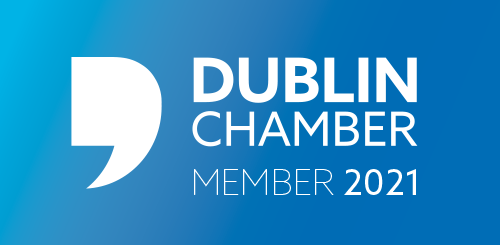
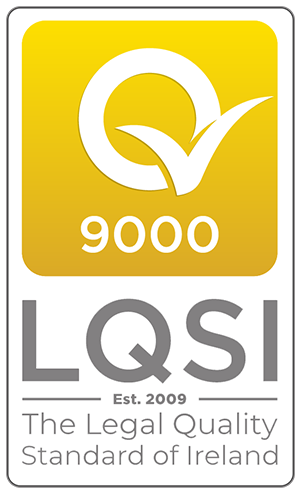
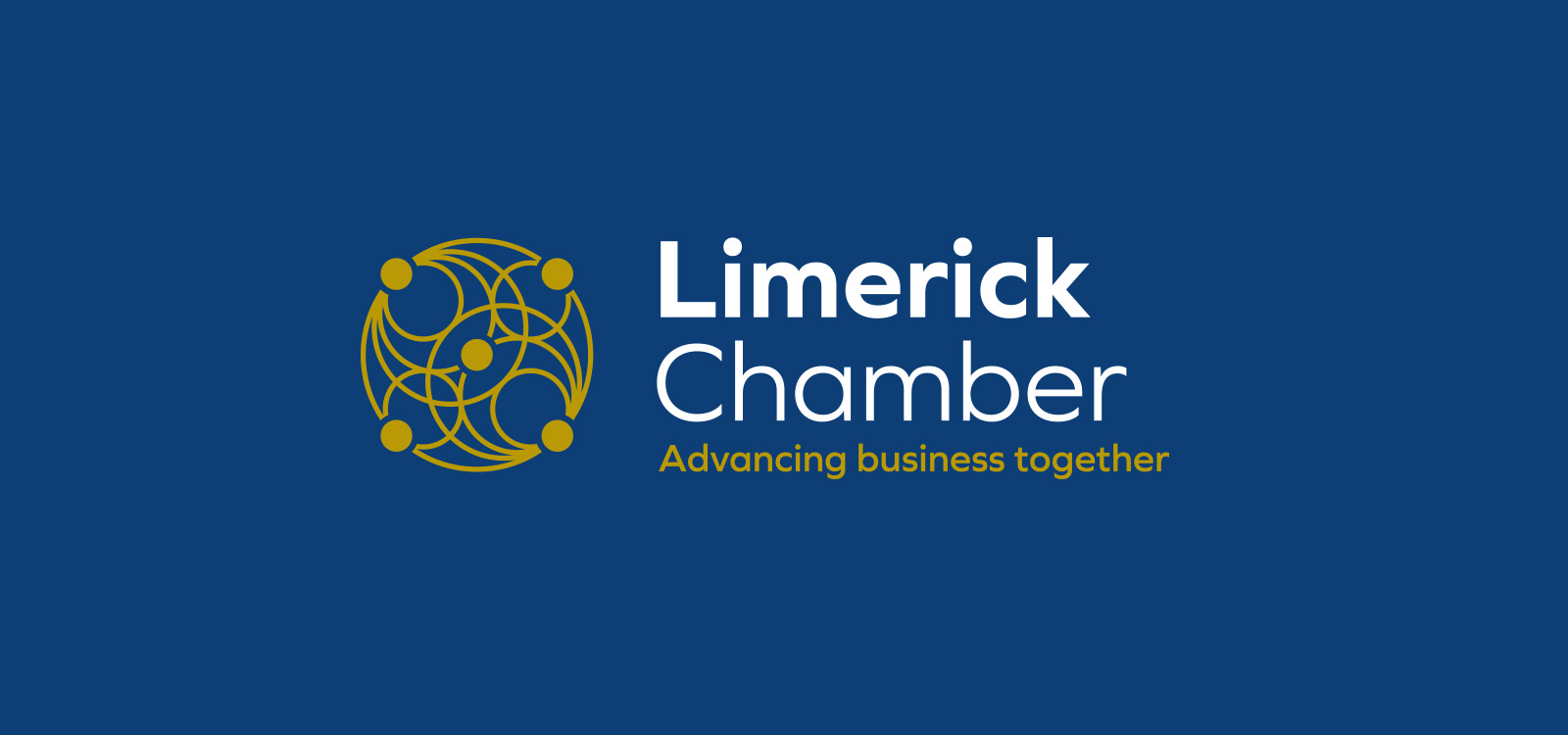


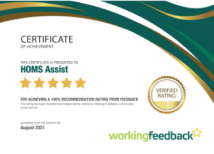
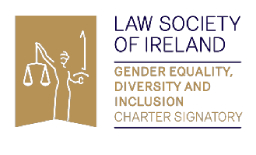
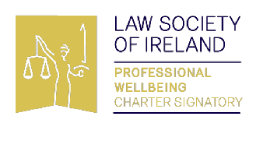







Request a callback
Fill out the form below, and we will contact you shortly. Required fields are marked *
Related Articles
At HOMS Assist, we believe that knowledge is power. That’s why we offer a range of articles and resources related to medical negligence claims

News Article
€1.5M Settlement: Justice for Injured Child

News Article
Lawnmower Accident Settlement: What to Know

News Article
Supreme Court Ruling Clears Path for Data Breach Compensation Claims

News Article
Traumatic Brain Injury Claims: Your Rights After a Workplace Accident

News Article
Workplace Tragedy: Understanding Your Rights After Fatal Accidents


One of the critical documents in your case is a medical report. Your solicitor will request information about your doctor or hospital to obtain a report on your injuries. This report will play a pivotal role in advancing your case.